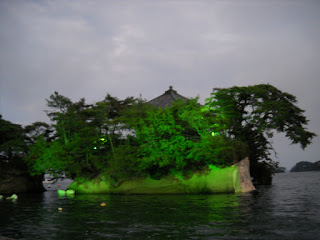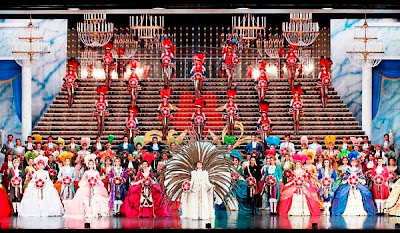Summer Festivals in Miyagi
 |
| Tanabata decorations in Sendai Station |
 |
| Why must you have so many trees, Sendai?! |
 |
| Matsushima's Godaido Temple, lit up during the Lantern Festival |
 |
| Zuiganji, one of Matsushima's oldest temples |
 |
| Monks reciting sutras during a Buddhist Obon service |
 |
| Lighting candles for those who have passed away |
There was also a very pretty light-up at the garden by the temple. We went to check it out, and were lucky enough to discover an Incense Ceremony happening inside the tea house. Incense Ceremonies are similar to the Japanese tradition of Tea Ceremonies. They're both a very old tradition, dating back to the Heian Period (Medieval). However, Incense Ceremonies, called Koudou, have become extremely rare and can be very expensive to participate in now.
 |
| My fellow participants at the Incense Ceremony |
 |
| Our ceremony master was the 21st in a long lineage of father to son Koudou masters |
This is my last post before I head out to Tokyo for my summer vacation. You can expect a new post about my travels in a week or two from now. My plans this year are to check out some of the districts of Tokyo I haven't seen yet, visit some friends, and best of all, climb Mt. Fuji.



Yay I've totally heard of Obon before! It must been more grim then usual because of the earthquake. Even though I don't believe in that kind of thing it sounds really nice to honor those people in this respect.
ReplyDeleteYeah, normally I don't find Obon Festivals very solemn or anything, but this year was a special situation. The service was really nice; regardless of whether or not you're Buddhist/spiritual, I think it was still nice to see the memory of the victims commemorated in this way.
ReplyDelete